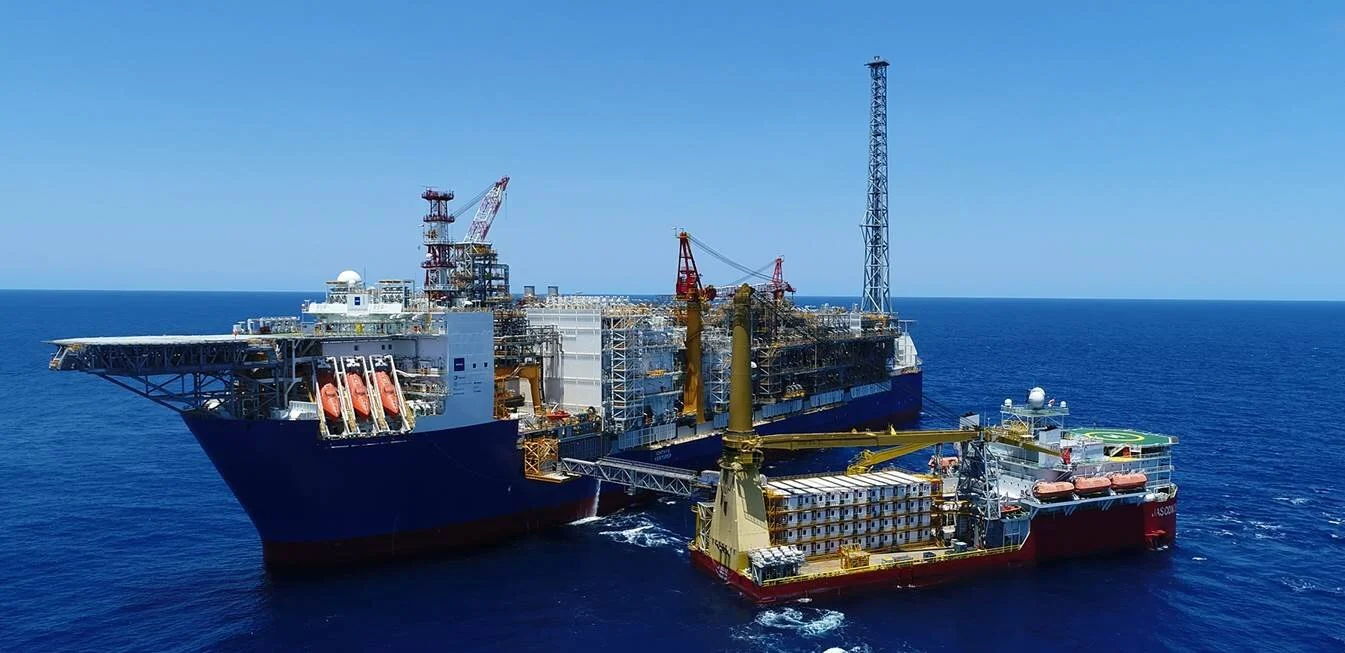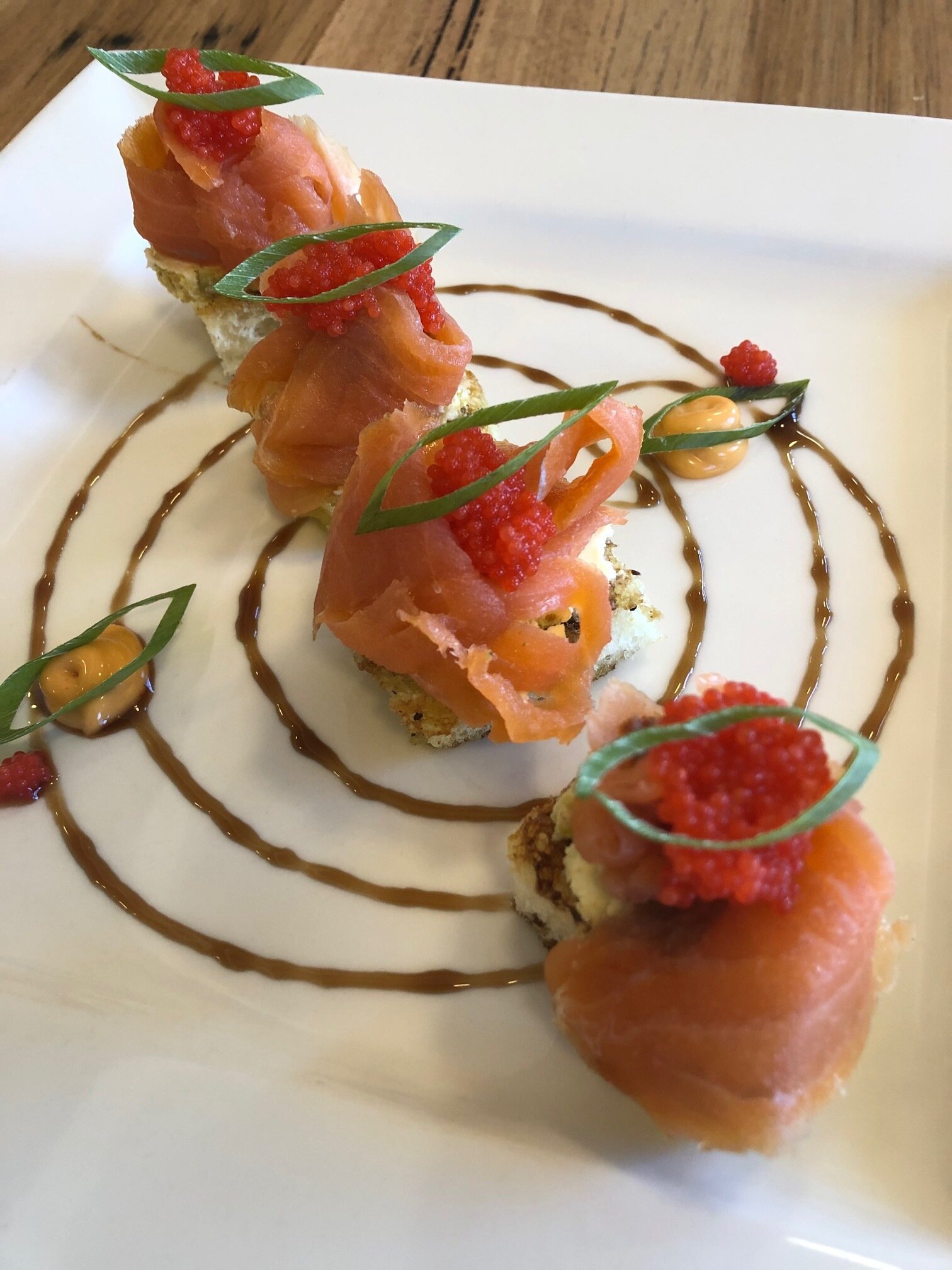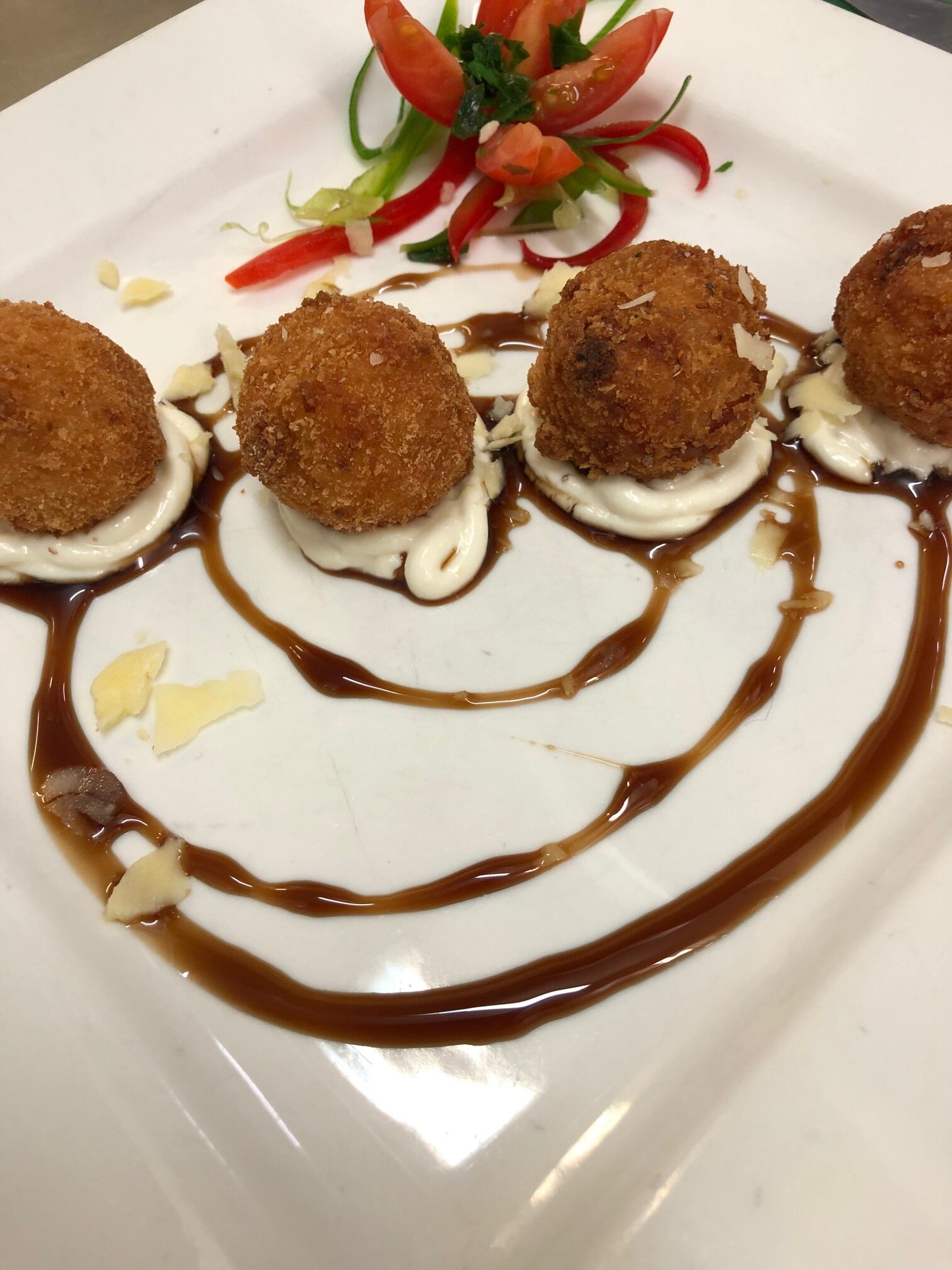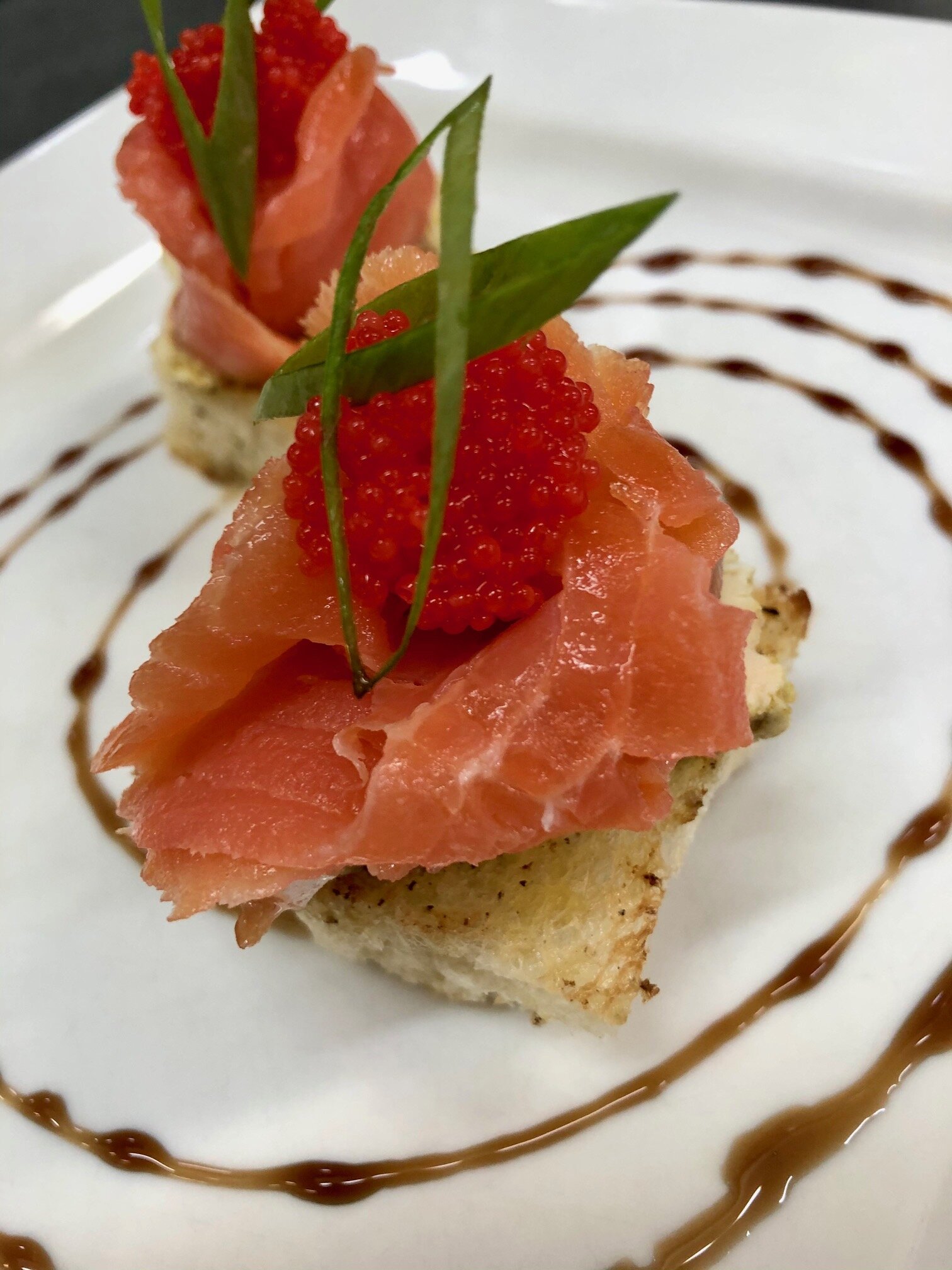PART 2: Frontier chefs -
Challenges of Offshore Catering
In the second part of our report we hear from Malcolm Burbidge of Compass Group and his experiences working on oil rigs, shipyards and remote sites.
A test of resilience
Malcolm’s work offshore has encompassed that of chef, catering manager and “virtually every role in hospitality”. As he says, “You have to be versatile – offshore employers prefer chefs who are also willing to do laundry, clean rooms, wash dishes, be a kitchenhand; that way if a chef goes down sick and can’t get out to the rig, basically anyone can jump in and take over that role. You have to be a jack of all trades and master of all too.”
MALCOLM BURBIDGE OF COMPASS GROUP
He’s been cooking for 35 years and for a decade or so had his own restaurant in Claremont WA, following which he decided to seek out fresh challenges. “I started working for Action Catering while I was networking to get a job offshore. That involved remote site work on the Dampier to Bunbury natural gas pipeline, working in little remote gas camps, then on to nickel camps in the Leonora area. It was good training, because a storm would come through and then you couldn’t get a supply truck in for a few weeks, so you soon learned to manage your stores and that stood me in good stead for working offshore, where you often don’t know when your stocks will arrive by boat.”
Malcolm’s first offshore job was with Spotless Catering and his initial deployment was to Balikpapan in Indonesia. “That was my very first time abroad so the attraction was the travel, the lifestyle and the cultural diversity.”
“I always love a challenge and you certainly get plenty of those offshore, ranging from cyclones to different cultural attitudes – it really tests your resilience.”
Communication difficulties and the need to compromise
At the same time, Malcom’s eyes were soon opened to the inevitable communication difficulties posed by language barriers.
“When we first went to Balikpapan we had to supply all our stores locally. Myself, another chef and our manager went off to a market and picked out our suppliers of Asian vegies and fruit.
“Everything looked nice and fresh and beautiful at the market, but when the stores arrived on the rig everything was rotten, old and you couldn’t take it back. So we had a fun trip back to Australia having to deal with what stocks we had, and stretching them to make them last!
“Once in Singapore I ordered some meat pies for an Australia day function, but when they arrived a couple of days later we found that what had been supplied were vegetarian spring rolls! ”
“No matter how much explaining and detail we gave, you’d often get something totally different and you just have to compromise and make do.”
Chefs are the basis for rig morale
Malcolm’s work is currently split between two sister camps for Chevron, one on Barrow Island and the other in Onslow on the Pilbara coast – and he’s also just completed a short stint at BHP house in Onslow. “There you’re only catering for six to 20 people, whereas on Barrow Island we cook for two and a half to three thousand people, and where I am at the moment we do anything from three to eight hundred people.”
He has spent much time over the past few years working on oil rigs over in Bass Strait: “Just out of Sale, Victoria, Esso has a group of 17 rigs fairly close together that have been there since the 1970s, so they’re pretty old. It’s a great bunch of people, a tightknit community; all the rigs are quite small and the personnel numbers from 30 to 70. It was a very good experience – you might only have two chefs, one does day shift and the other night, producing breakfast, lunch, dinner, midnight snacks, morning and afternoon teas – it’s a 24 hour operation and you get quite well looked after out there.”
This is because meals are among the highlights of the crew’s day – making chefs the basis of morale for the whole rig.
“You put out one bad meal and that’s all they talk about for days – they only remember the bad ones, no matter how good your usual standard is. So you always try to stand behind what you’re serving – many of the chefs are very talented, very tightknit. Everyone has to get along and you find out very quickly whether you’re cut out for it or not.”
Everyone works together to get the job done
“I had one chef who’d done the dinner, finished service and bailed out to leave the team to finish up. And when I confronted him about it he said, ‘I’m a chef, I don’t do dishes’. And I said, that’s not how it works out here – and that’s not what was specified in the contract you signed. So you either pack your bags or become part of the team, lead by example and pitch in – you all work together, you get the job done, start work together and finish work together. You either do that or you jump on the helicopter tomorrow and someone else will take your spot in a heartbeat.
“And straight away he was, ‘yep, I can do dishes’. You’re on good money out there and if you’re not told straight up, you don’t know what the expectations are. There are a few who try it on, but you need to all work together, get along and form your own individual teams – kitchen team, laundry team, cleaning team, each of which has a trained role to play.”
As to the kitchen facilities on board, Malcolm says there’s quite a variation from one to another: “I’ve been on the brand new Floatel Endurance state of the art rig for the Wheatstone platform that got built out here, which came down from Norway – a purpose-built, 500-crew floating hotel. It was a semisubmersible rig, meaning it could drive itself around; a lot of others get towed but this one was self-propelled. That had an amazing kitchen and dining room, individual rooms for each person with your own ensuite, TV and telephone, very fancy and flash.”
Life in close quarters
The other end of the spectrum, which Malcolm describes as “your worst case scenario”, is a four berth room: four people in one room, two on day shift and two on night. “You have to alternate so you’re in and out, ready for the next crew to come in and have their sleep. There’s two bunk beds on either side, a set of lockers and just enough room to walk down the middle. That’s about your normal rig room, they’ve all got shared ablutions and toilets.
“The kitchens are actually quite good – very functional, some can be very tight and a little bit harder to use, but the majority of them are very nicely purpose-built and have just enough equipment to be able to do what you need for the job. Your food wastage goes into a macerator and all the waste is pulped into liquid and goes into the ocean.
“You do get your breakdowns and that’s where your expertise and teamwork has to come in – because you have to come up with an alternate plan. I’ve been on one rig where we had to shut the whole kitchen down for a whole week due to fire safety maintenance – we went to barbecues outside on the helideck.
“And people go, ‘Beautiful, you don’t have to cook, you’ve only got a barbecue to do’, when it’s actually twice as much work because everything has to be carted out, set up and cooked on the spot!”
Another memorable experience was working on the Jascon 25 which was used to build the Ichthys gas field. “They whacked about 300 extra rooms on it,” Malcolm remembers, “so although the kitchen and dining room were designed for 200, we were feeding 500. It was quite a challenging job – you basically had a six foot square for each person to work in, that was your area and you had to make do!”
Malcolm sums up his experiences by saying: “I no longer class myself as having a passion for cooking, it’s now an obsession. When people ask me while I’m working offshore or remote how my day’s going, my go-to response is that I’m living the dream and getting paid to do it. Then I ask them if they’re doing the same or if they’re living the dream and working to pay for it.”
Interested in working offshore?
Malcolm says there is a big push for chefs and apprentices at Compass Group right now – anyone interested in applying can go online to Compass Group Australia and see what jobs are available. Positions cover everything from five star catering to airport catering, fine dining restaurants, armed forces and aged care as well as remote catering sites. Malcolm says, “I can’t emphasise enough that it’s a great company to work for – there’s so many opportunities for advancement, and you can go as high as you can aim.”
Those interested in applying should visit the Compass group website at https://careers.compass-group.com.au













